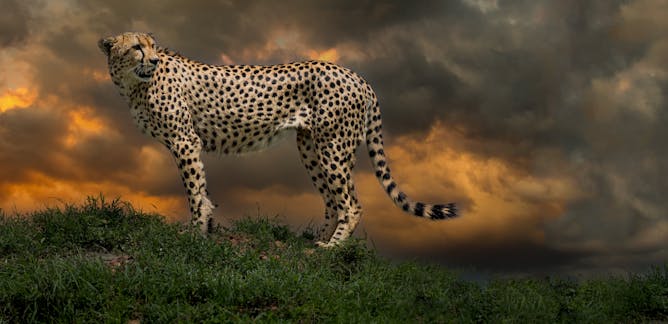|
|
|
|
Nau mai, haere mai.
The sinking of a Navy ship in Samoan waters brings back memories of the 2011 Rena disaster off the Tauranga coast. The cargo ship ran aground on the Astrolabe reef and sank with hundreds of containers and 1,700 tonnes of heavy fuel oil. About a fifth of the oil spilled into the sea and contaminated beaches.
In comparison, the wreck of HMNZS Manawanui off the south coast of Upolu, Samoa’s most populated island, poses a lesser risk. As coastal scientist Chris Battershill writes, the Navy vessel carried a much lighter fuel whose most toxic components are likely to evaporate.
Nevertheless, for the local people who depend on the sea to provide healthy food, the sinking of the Manawanui is a disaster. The speed of the salvage operation will ultimately determine the level of damage to the environment.
The team’s focus will be on recovering as much fuel as possible, but Battershill raises another concern: the collision with the reef may have exposed old layers of an anti-fouling paint which is now banned because of its lasting toxicity to marine life. Only a thorough and speedy cleanup of the wrecked ship can prevent major damage to the reef.
|

|
Veronika Meduna
Science, Health + Environment New Zealand Editor
|
|

Christopher Battershill, University of Waikato
Damage from the loss of a New Zealand naval ship in Samoa can be limited if salvage and cleanup crews move fast. But the depth at which the ship now lies will be a challenge.
|

Jonny Williams, University of Reading; Georgia Rose Grant, GNS Science
The predicted range of future warming remains stubbornly wide. But trying to land on a precise number diverts effort and attention from the climate impacts we’re already seeing.
|

Andrew Vonasch, University of Canterbury
A really good deal can make economic sense. But new research shows people are inherently suspicious if an offer seems overly generous.
|

Robert G. Patman, University of Otago; Alexander Gillespie, University of Waikato
The government’s push for closer relations with the US could be undone by a Trump victory in November.
|

Holly Thorpe, University of Waikato; Fiona Langridge, University of Auckland, Waipapa Taumata Rau; George Laking, University of Auckland, Waipapa Taumata Rau; Judith McCool, University of Auckland, Waipapa Taumata Rau
Health and wellbeing are greatly affected by extreme weather events. New research into how people and systems responded after Cyclone Gabrielle shows how we can react better to future emergencies.
|

Colin Campbell-Hunt, University of Otago
Compared to countries we might benchmark against, New Zealand ranks poorly for inequality and the redistributive measures that would fix it. But other countries have shown it is possible to change.
|

Antje Fiedler, University of Auckland, Waipapa Taumata Rau; Benjamin Fath, University of Auckland, Waipapa Taumata Rau
The aftermath of the 2008 global financial crisis was hard. But today’s ‘long squeeze’ could be even harder for small business owners, as consumer spending and survival options diminish.
|
From our foreign editions
|

Zachary Handlos, Georgia Institute of Technology; Ali Sarhadi, Georgia Institute of Technology
Milton’s fast spin-up in the Gulf of Mexico was one of the most rapid intensifications on record. Two scientists who study hurricanes explain why this happens and what’s changing.
| |

Stephen Townsend, The University of Queensland; Alan Pearce, Swinburne University of Technology
A new portrait of NRL star Wally Lewis brings home the consequences of brain trauma in ways traditional science communication struggles to achieve.
|

Scott Lucas, University College Dublin
October 7 was a terrible milestone in a conflict that has been raging for nearly eight decades and seems to have no prospect of ending.
| |

Carol Johnson, University of Adelaide
He was elected promising a new style off government, but his difficulty in countering Peter Dutton’s right-wing populism has left Albanese floundering.
|

Alexander H. Beare, University of Adelaide
Running for six seasons from 1999 to 2007, The Sopranos is still enjoying a sustained cultural relevancy in 2024 – something other prestige dramas of the same era have not achieved.
| |

Olga Anikeeva, University of Adelaide; Jessica Stanhope, University of Adelaide; Peng Bi, University of Adelaide; Philip Weinstein, University of Adelaide
When human activities disrupt and unbalance ecosystems, such as by way of climate change and biodiversity loss, things go wrong.
|

Joseph Ogutu, University of Hohenheim
Over the past 112 years the Mara-Serengeti ecosystem has experienced major changes in its weather.
| |

Justin Stebbing, Anglia Ruskin University
US scientists Victor Ambros and Gary Ruvkun changed our understanding of how the body works and opened up a new area of science.
|
|
|
| |
| |
| |

|
| |
| |
| |
| |
| |
| |
|
|
|
|
|
|
|